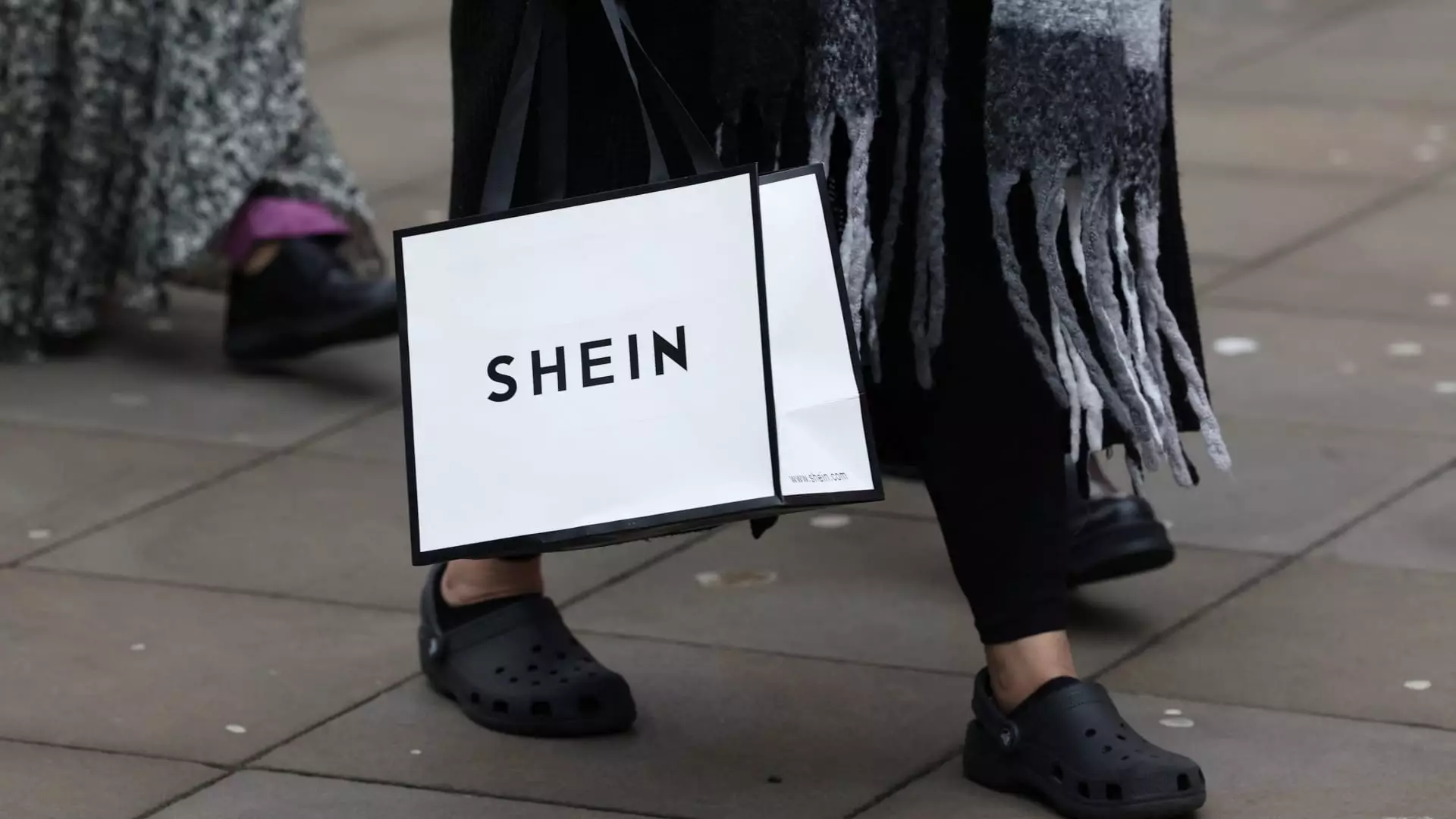In a strategic move to bolster its public image, fast fashion titan Shein is once again reshaping its narrative as it sets its sights on a potential public listing in London within the year. This fresh charm offensive comes in the wake of the company’s first product safety recall in the United States since 2021, emphasizing its commitment to safety and compliance. A press release detailing these efforts serves both as a reassurance to consumers and an attempt to appease lawmakers who have raised alarms over product safety and ethical sourcing.
It is noteworthy that Shein’s recent announcement follows a significant incident involving the recall of over 300 hair dryer brushes, a product that posed serious electrocution hazards. This incident, concerning the Teckwe Hair Dryer Brush—a clear dupe of a premium product by Dyson—illuminates the crucial role that proactive safety measures play in the retail landscape. While no injuries were reported, the company’s responsiveness in offering refunds signifies an effort to maintain consumer trust. Such transparency in dealing with product safety, however, raises questions about the reliability of third-party products sold through their marketplace.
To underscore its commitment to quality control, Shein claims to have conducted over two million product safety tests last year with the assistance of respected laboratories such as Bureau Veritas and Intertek. This assertion positions Shein as an outlier in the fast fashion industry, where safety testing often falls to individual sellers on online marketplaces rather than the retailer itself. In a fiercely competitive landscape, Shein’s decision to implement comprehensive testing for third-party vendors highlights its determination to differentiate itself and regain consumer confidence.
This initiative could be interpreted as a strategic response to heightened concerns about product safety and ethical practices within the industry, particularly as global scrutiny mounts regarding labor practices. By requiring rigorous documentation for categories ranging from toys to electronics, Shein is striving to reframe public perception and address criticisms that have long plagued fast fashion brands.
However, Shein’s challenges extend beyond safety recalls and product testing. Recently, the company’s representatives have faced intense scrutiny from UK lawmakers about their supply chain practices, particularly surrounding the controversial sourcing of cotton from the Xinjiang region of China, which is often linked to allegations of forced labor involving Uyghur populations. The hesitance exhibited by Shein’s representatives to engage in discussions about their sourcing practices has raised serious concerns among legislators, who argue that such avoidance undermines trust.
The statement from Shein’s general counsel, Yinan Zhu, asserting that the company complies with local laws and regulations, appears inadequate in addressing the complex ethical landscape surrounding labor practices. This evasiveness has sparked outrage among lawmakers, who express dissatisfaction with Shein’s lack of transparency and accountability regarding its supply chain integrity. The disparity between Shein’s past vocal assurances about its cotton sourcing and its current silence during parliamentary discussions is particularly striking, illustrating a potential chasm between PR efforts and operational realities.
As Shein gears up for its anticipated public listing, much depends on its ability to navigate these complex waters. The previous failed IPO attempt in the United States looms large, highlighting the essential nature of consumer trust in a successful public offering. The ongoing charm offensive, therefore, seems less an isolated effort and more part of a broader strategy that encompasses improved transparency, rigorous safety measures, and ethical labor practices.
Moreover, Shein’s establishment of a new nonprofit foundation to promote sustainability initiatives suggests a strategic pivot toward enhancing its corporate social responsibility (CSR) profile. This initiative may serve as a dual-purpose tool: bolstering its brand image while seeking to mitigate the criticisms that come with being a fast-fashion retailer notorious for unsustainable practices.
Shein stands at a pivotal juncture, where its future hinges on winning over both consumers and legislators amidst a landscape fraught with challenges. As the company maneuvers toward a public listing, its ongoing efforts to bolster product safety, enhance transparency in its supply chain, and integrate sustainability into its operations will be crucial in redefining its identity. The effectiveness of these strategies will ultimately determine whether Shein can transform its current vulnerabilities into strengths that resonate with an increasingly conscientious consumer base in a dynamic marketplace.

